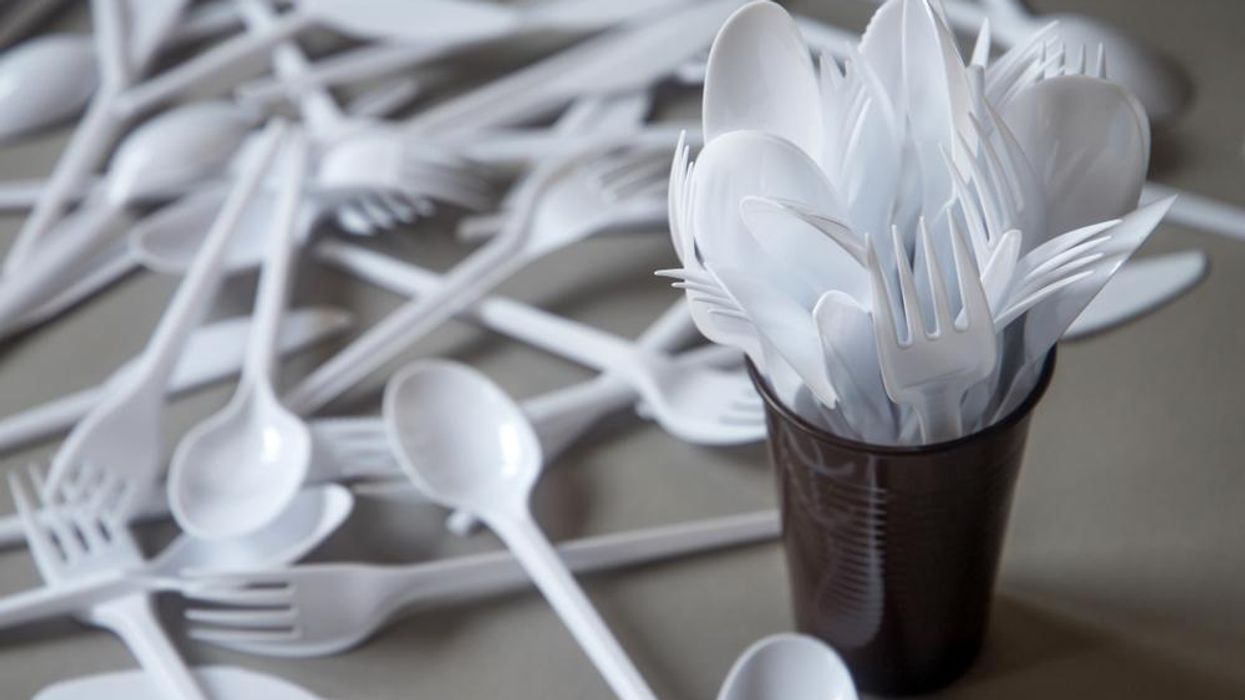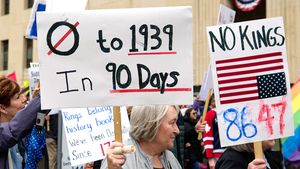The British government is set to ban single-use plastic products in a move that aims to reduce pollution and excess waste.
England already banned plastic straws, stirrers, and cotton swabs in 2020. The new ban encompasses plastic plates, trays, bowls, cutlery, balloon stick, and certain types of plastic containers, though only applies to restaurants and cafes, not supermarkets and stores.
The UK government also plans to make manufacturers cover the cost of plastic disposal beginning in 2024. Environment Secretary Therese Coffey told The Mail that the policy will hopefully curtail the amount of waste the country produces, as well as shift the responsibility of healing environmental damage on the companies who cause it rather than consumers.
"A plastic fork can take 200 years to decompose — that is two centuries in landfill or polluting our oceans," Coffey said. "This new ban will have a huge impact to stop the pollution of billions of pieces of plastic and help to protect the natural environment for future generations."
A similar ban took effect in Scotland last summer, with Wales approving their own in December. The United States has so far only banned certain products in select states, such as California and New York's plastic bag bans.
Defra statistics via the BBC report that England uses 1.1 billion single-use plates and 4.3 billion plastic utensils every year, but only 10 percent of that waste is recycled.
Steve Hyndside, the policy manager at British nonprofit City to Sea, said in an interview with LBC that the waste is dangerous and "completely unnecessary."
"What we're talking about here is, I think, a really positive vision," he said. "So as much as we all like the convenience of single-use plastic, and I think there's no point pretending that's not there ... we just can't carry on going as we are."
But campaigner for Greenpeace UK, Megan Randles, said in a Tweet that "whilst the removal of billions of commonly littered items is never a bad thing — this is a very long overdue move and still a drop in the ocean compared to the action that's needed to stem the plastic tide."
"We need system change at the source," she wrote. "Reduction and reuse/refill targets, meaningful extended producer responsibility (so the polluters actually pay), and a deposit return scheme like so many European countries have already."
- Post Ian, Florida Is Still Flooded... Now With Sewage ›
- EPA to Crack Down on Deadly Air Pollution ›
- 65 Percent of Antarctica's Plants and Animals Could Disappear, Scientists Say ›
- Nearly 2,000 Manatees Starved to Death Over the Past Two Years ›
- World Governments Create Treaty to End Plastic Pollution ›


















































